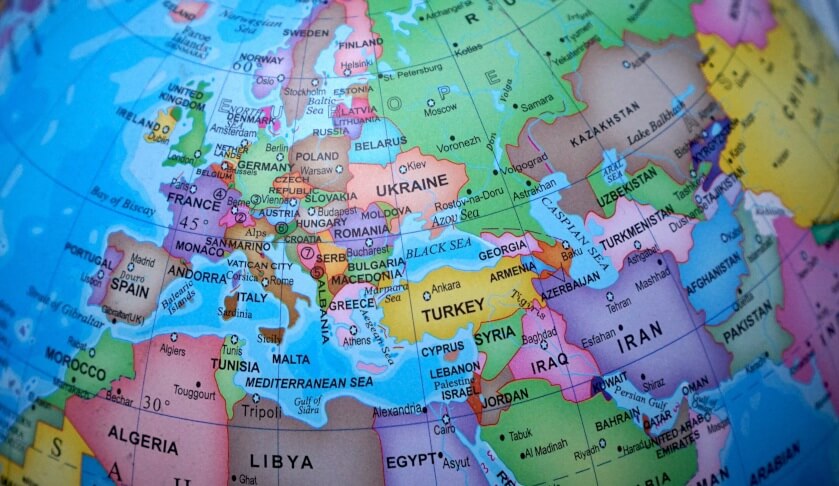With the recent arrest of Belarusian journalist Roman Protasevich, the defiance of totalitarian regimes in the face of international condemnation are on the rise.
Regimes around the world are flexing their muscles, unfearful of public outcry or international condemnation. And the West is allowing this to happen.
In March, Defence Connect Insight analysed the growing tendency of the Iranian regime to use hostage diplomacy, particularly in the case of Dr Kylie Moore-Gilbert, to force governments around the world into making concessions such as prisoner exchanges.
Earlier this week, the world was again shocked following the arrest of Belarusian opposition blogger and journalist Roman Protasevich.
Protasevich’s case was particularly shocking because of the brazenness and unexpectedness of the arrest. While on a flight from Athens to Vilnius, the aircraft had received word of a bomb threat, which redirected the flight to Belarus with the government scrambling a MiG-29 to guide the flight.
Protasevich, managed Nexta. Nexta was a Poland-based news service that co-ordinated protest movements across the country since the disputed presidential election in August 2020. The France 24 news outlet estimated that some 200,000 people had rallied against the government, and even reported that Russia had offered military assistance to the Belarusian government during the protests. This clearly made Protasevich a big target in the eyes of President Alexander Lukashenko.
While the two cases between Iran and Belarus are different, one in which the Iranians take hostages as a diplomatic tool and the other where a regime silences their opposition, both illustrate the growing bravery and defiance by totalitarian regimes to dictate an outcome regardless of public outcry or humanitarian law.
Slawomir Sierakowsky, director of Warsaw’s Institute for Advanced Study, writing for Project Syndicate and published in ASPI’s The Strategist this week suggested that the extreme acts are driven by “Western complacency”.
“The key to Nexta’s power was that it based itself outside of Belarus, in Warsaw. The Lukashenko regime could neither turn off its internet connection nor imprison or shoot it, as it was doing with opposition outlets and protesters still in Belarus. Lukashenko was doubtless infuriated by the fact that the protests were being guided not so much by Svetlana Tikhanovskaya, the likely winner of the August election, but by an elusive new-media operator beyond Belarus’s borders,” Sierakowsky wrote.
“Because the Ryanair flight Protasevich was on was much closer to Vilnius than to Minsk, the Lukashenko regime’s claim that a bomb threat necessitated an emergency landing in the Belarusian capital is not credible. Once it was on the ground in Minsk, they made a fleeting show of searching passengers and their luggage before quickly apprehending the young dissident and his girlfriend.”
Indeed, the West has allowed this problem to flourish, Sierakowsky argues. From the poisoning of Navalny to the attack on Sergei Skripal, the laissez-faire European attitude towards the former Soviet bloc is acting as a green light signal for these human rights abuses to continue.
“The hijacking is meant to send a message. To the opposition, Lukashenko wants to say, ‘Your days are numbered. You are traitors, and we kill traitors.’ And to the EU, he has issued a direct challenge: ‘We can make fools of you whenever it suits us, and you will not hurt us, because you are weak’,” Sierakowsky suggested.
Over a month before the arrest of Protasevich, Sierakowsky prophetically penned a different article in Project Syndicate commenting on President Joe Biden’s indifference to US allies in eastern Europe and the impact that this would have to the power balance in this volatile part of the world.
“US President Joe Biden is very familiar with both Poland and Ukraine. His decades of service as a United States senator and his eight years as vice president under Barack Obama taught him that the two countries are among America’s most devoted friends and allies. Yet he waited until April 2 – just as Russian troops were once again massing on Ukraine’s eastern border – to call Ukraine’s president, and he still has not spoken to his Polish counterpart,” Sierakowsky wrote.
Such indifference is a dangerous geostrategic move. The United States is already in its weakest relative military position since the collapse of the Soviet Union due to the sharp uptick in the militaries of US adversaries. This was confirmed by a report by the United States National Defense Strategy Commission to the Senate, which described in no uncertain terms how precarious the US military situation is.
“The hard-power backbone of its global influence and national security — has eroded to a dangerous degree ... America’s ability to defend its allies, its partners, and its own vital interests is increasingly in doubt,” the commission wrote.
Indifference to military allies and humanitarian crises such as hostage diplomacy and civilian crackdowns will only strengthen the bargaining power of totalitarian regimes, as each day that goes past without decisive action signals a greenlight that these actions are to be accepted by the west. With a weakening relative military, it is time for the US to burden share and bring allies closer while drawing a line in the sand for dissident regimes.
Get involved with the discussion and let us know your thoughts on Australia's future role and position in the Indo-Pacific region and what you would like to see from Australia's political leaders in terms of partisan and bipartisan agenda setting in the comments section below, or get in touch with



